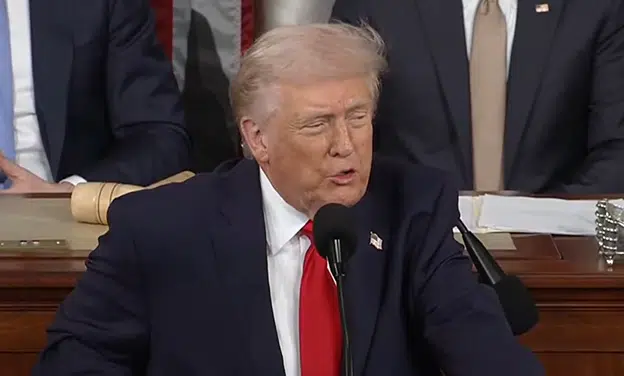
South Carolina’s GOP primary on Feb. 24 will deliver another match between its former governor Nikki Haley and Former President Trump. Haley’s level of success will depend heavily on her ability to court non-Republicans who are more determined to block Trump from the nomination than to support Joe Biden in the Democratic Primary.
After a modest showing that delivered her second place in the New Hampshire primary last week thanks largely to “unaffiliated” voters casting their votes against Trump, Haley has resisted calls from prominent conservatives to drop from the race.
Americans for Limited Government President Richard Manning issued the following endorsement of Trump after Haley’s loss in New Hampshire:
“Donald Trump will be the GOP nominee for President of the United States, and Americans for Limited Government proudly supports him. It is time for former Governor Nikki Haley to end her campaign in order that the focus can turn to defeating Joe Biden and his attempt to finish the fundamental transformation of America promised by Barack Obama.”
Despite losing to Trump by just over 11 percentage points in New Hampshire – with the bulk of her votes coming from non-Republican voters – Haley insists she is staying in the race.
Haley has pledged to stay in the race at least through Super Tuesday, which takes place March 5 this year. Fifteen states will select their GOP nominee on that day, including Alabama, California, Minnesota, North Carolina, Texas, and Virginia. The results of Super Tuesday have historically clarified whether there is a path forward for second and third-tier GOP candidates and an inadequate showing there could be the final blow to Haley’s campaign.
However, a number of important battleground states, including Halley’s home state of South Carolina, will select their nominee this month prior to Super Tuesday. Haley is setting her sites on South Carolina, which holds its GOP primary Feb. 24.
Haley stated in an interview with NBC News that while she needs a stronger showing in her home state than she had in New Hampshire, she doesn’t believe she has to win South Carolina to justify staying in the race.
“I need to show that I’m stronger in South Carolina than New Hampshire. Does that have to be a win? I don’t think that necessarily has to be a win,” Haley said. “But it certainly has to be better than what I did in New Hampshire, and it certainly has to be close.”
A strong win in South Carolina for Haley will likely rely heavily on her ability to court voters outside the Republican Party, because Trump leads her by over 40 points among Republicans.
According to a January Emerson poll, Haley is polling well among independent voters – much like she did in New Hampshire – but is at a significant disadvantage with Republicans. The poll found Haley leading with independents 37% to 33%, but trailing Trump among Republicans 62% to 21%.
Haley also suffers from an enthusiasm gap in her home state. According to the Emerson poll, Trump leads her among voters who are “very likely” to vote by 33 percentage points, 57% to 24%. Among those who are “somewhat likely” to vote, Trump’s lead narrows to three points, with Trump earning 34% to Haley’s 31%.
Like New Hampshire, South Carolina allows residents to vote in either the GOP or Democratic primary, regardless of the way they are registered to vote, however they are only allowed to vote in one of the two. Democrats vote this Saturday, and those who don’t cast a ballot for Biden – or one of his long-shot challengers – will be eligible to vote for Haley in three weeks if they so choose and attempt to block Trump.
A Haley spokesperson told NBC News recently that, “if Republicans want to start winning again, we have to start bringing in new voters, including conservatives, independents and Democrats who are fed up with Joe Biden.”
This implication suggests a part of Haley’s strategy in her home state will be similar to her strategy in New Hampshire, targeting soft Democrats whose primary goal this year is barring Trump from office, not necessarily affirming their support for Biden.
Haley achieving a strong standing in her home state will likely rely heavily on non-Republican votes who see beating Trump as a bigger victory than supporting Joe Biden against long-shots Rep. Dean Phillips and Marianne Williamson and choose to vote in the GOP primary instead of their own.
However, South Carolina Republicans heavily favor Trump, and Haley’s ability to peel off Democrats and left-leaning independents is no guarantee. If turnout is low for Saturday’s Democratic Primary, it will be an early indicator that Democrats are ‘saving’ their votes for the GOP primary to block Trump.
Manzanita Miller is an associate analyst at Americans for Limited Government Foundation.






